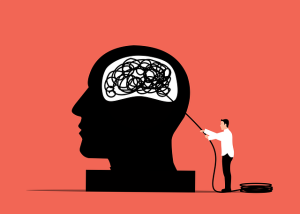Behavior modification programs using Cognitive Behavioral Therapy (CBT) help individuals transform negative thoughts and behaviors into positive, realistic alternatives. CBT's structured approach, accessible across diverse settings, makes it a viable option for personal growth and enhanced mental well-being. These programs identify target behaviors, set SMART goals, and tailor strategies to individual needs, fostering sustainable change by addressing negative thought patterns. Effective implementation includes goal setting, reinforcement, feedback, and regular monitoring, with progress tracking enabling informed adjustments. Long-term success requires follow-up sessions, peer support, and integration of CBT tools into daily routines.
Behavior modification programs, including Cognitive Behavioral Therapy (CBT) therapy, offer powerful tools for personal growth and change. Understanding these programs is crucial for those seeking to improve their mental health and well-being. This article delves into the intricacies of behavior modification, focusing on CBT as a game-changer in therapy. We explore strategies from identifying target behaviors to long-term success, providing insights for anyone looking to navigate and benefit from this effective approach.
Understanding Behavior Modification Programs

Behavior modification programs are structured interventions designed to help individuals understand and change their behaviors, thoughts, and feelings. At the heart of many successful programs is Cognitive Behavioral Therapy (CBT), a form of talk therapy that focuses on identifying and altering negative thought patterns and behaviors. By teaching participants to challenge and replace self-destructive thoughts with more positive and realistic ones, CBT empowers them to make lasting changes in their lives.
These programs often involve a range of techniques, from goal setting and reinforcement to exposure therapy, all tailored to address specific behavioral challenges. They can take place in various settings, including clinical offices, group therapy sessions, or even online platforms, making them accessible to a wide range of individuals seeking personal growth and improved mental well-being.
CBT Therapy: A Powerful Tool for Change

CBT therapy, or Cognitive Behavioral Therapy, is a highly effective and structured approach to behavior modification. It focuses on identifying and changing negative thought patterns and behaviors that contribute to various mental health issues. By challenging and modifying these thoughts, individuals can learn to manage their emotions and develop healthier coping strategies. CBT encourages active participation from the individual, teaching them specific skills to apply in their daily lives.
This therapeutic method has been extensively researched and proven successful in treating conditions such as depression, anxiety disorders, and post-traumatic stress disorder (PTSD). It empowers folks by giving them practical tools to overcome challenges and promote positive changes in their lives. CBT therapy offers a transformative process that can lead to lasting improvements in mental well-being and overall quality of life.
Identifying Target Behaviors and Goals

Identifying specific target behaviors and setting achievable goals is a fundamental step in behavior modification programs, often facilitated by techniques like Cognitive Behavioral Therapy (CBT). CBT helps individuals recognize negative or undesirable patterns and replaces them with more positive ones. By breaking down complex behaviors into smaller, manageable components, it becomes easier to pinpoint the exact actions that need adjustment.
This process involves clear communication between the individual and their therapist, where they work together to define what success looks like in each identified area. Setting SMART goals—Specific, Measurable, Achievable, Relevant, and Time-bound—ensures that the objectives are realistic and trackable, fostering a sense of accomplishment as progress is made.
Creating a Customized Plan

Behavior modification programs thrive on personalization, tailoring strategies and techniques to meet the unique needs of each individual. This involves a collaborative process between the behavior modification specialist and the participant, where their specific goals, challenges, and triggers are identified. For instance, Cognitive Behavioral Therapy (CBT) is a widely recognized approach that focuses on modifying negative thought patterns and behaviors by helping individuals challenge and change their distorted thinking. By customizing plans using evidence-based methods like CBT, these programs enhance effectiveness, fostering more sustainable behavior change.
Techniques Used in CBT Therapy

Cognitive Behavioral Therapy (CBT) is a structured and goal-oriented approach that focuses on identifying and changing negative thought patterns and behaviors. It involves various techniques to help individuals understand the connection between their thoughts, feelings, and actions. One key method is cognitive restructuring, where therapists assist clients in challenging and replacing irrational beliefs with more realistic and positive ones. This process empowers individuals to manage their emotions effectively.
Additionally, CBT encourages active participation through homework assignments and practice outside of therapy sessions. It teaches practical skills for coping with stress, anxiety, or depression by focusing on the present and providing tools to reframe negative situations. Through these techniques, CBT offers a powerful framework for behavior modification, enabling individuals to lead more fulfilling lives by managing their mental health proactively.
Implementing the Program Effectively

Implementing a behavior modification program effectively requires careful planning and strategic execution. It’s crucial to tailor the approach to the individual or group, considering their unique needs, preferences, and challenges. One evidence-based method that has proven successful is Cognitive Behavioral Therapy (CBT), which focuses on identifying and changing negative thought patterns and behaviors. By teaching individuals new coping strategies and skills, CBT enables them to manage their emotions and make positive behavioral changes over time.
For optimal results, the program should be comprehensive, involving various techniques such as goal setting, reinforcement, and feedback mechanisms. Consistent participation and commitment from both the individual and support system are essential. Regular monitoring and adjustments based on progress ensure the program remains effective and aligned with the participant’s evolving needs.
Tracking Progress and Adjusting Strategies

Tracking progress is a vital component of successful behavior modification programs, enabling practitioners to assess the effectiveness of interventions and make informed adjustments. By utilizing structured assessments and regular monitoring, therapists can gain valuable insights into clients’ progress, identifying areas where strategies are working well and pinpointing aspects that require refinement. This iterative process involves comparing baseline data with subsequent measurements, allowing for a dynamic approach to treatment. For instance, Cognitive Behavioral Therapy (CBT) often employs pre-post tests and ongoing journaling to track changes in thought patterns, emotional responses, and behavioral outcomes.
Adjusting strategies based on progress tracking is essential to tailor interventions to individual needs. If certain techniques prove ineffective, therapists can experiment with alternative methods or modify existing ones. This flexibility ensures that the behavior modification program remains responsive to clients’ unique challenges and goals, fostering a more engaging and successful therapeutic journey.
Long-Term Success and Maintenance

Ensuring long-term success and maintenance is a key consideration in any behavior modification program. Cognitive Behavioral Therapy (CBT) has proven effective in fostering lasting changes by equipping individuals with tools to manage their thoughts, emotions, and behaviors independently. Through CBT therapy, participants learn to identify negative thought patterns, challenge them, and replace them with healthier alternatives, which can significantly improve their coping mechanisms. This empowers them to maintain new behaviors even when faced with challenging situations.
Regular follow-up sessions and a strong support network are essential to achieving sustained results. Regular practice of learned techniques, coupled with ongoing support from therapists or peer groups, helps reinforce positive changes. By integrating these practices into daily routines, individuals can prevent relapse and continue experiencing the benefits of behavior modification well beyond the program’s conclusion.
